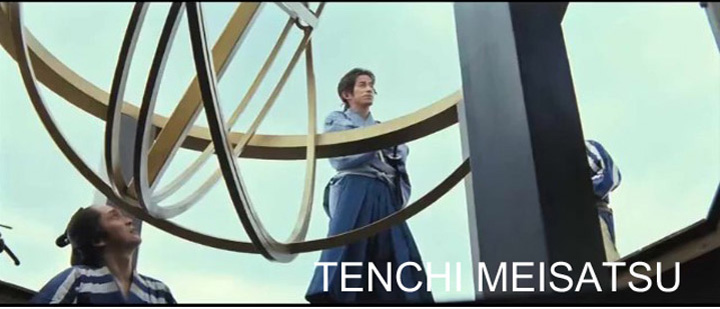Plot
If one were to hold a competition to find the most unlikely and least inspiring subject for a feature film, "Reform of the Calendar in Seventeenth-Century Japan" would be a strong contender for the winning entry. ...
Well, someone actually has now made a film about "Reform of the Calendar in Seventeenth-Century Japan", a topic which is likely to be of only limited interest to the Japanese themselves (who have used the Western Gregorian Calendar since the late nineteenth century) and perhaps of virtually no interest to Westerners. And yet the film manages to be an enthralling one. This is possibly because, in the seventeenth century, calendar reform was far from being an obscure or esoteric subject to the Japanese. In the West the issue was not so pressing; during this period the British were happy to go on using the old Julian Calendar even though it was ten days (or after 1700 eleven days) out of step with the more accurate Gregorian Calendar used in much of continental Europe, and when the Gregorian Calendar was finally adopted in 1752 many people rioted in protest. In the Far East, however, the accuracy of the calendar was regarded as being of great importance, not only by the authorities but by ordinary people as well, because it was used to calculate the times of eclipses (regarded as being of great astrological significance) and auspicious and inauspicious days for performing certain activities.
The central character in this film is Yasui Santetsu (1639-1715), a real-life figure known as a scholar, go player and mathematician. He was appointed as Japan's first official astronomer by the Shogun at around the same time as his contemporary John Flamsteed became Britain's first Astronomer Royal. In the course of his duties Yasui comes to realise that Japan's existing lunisolar calendar is inaccurate, and realises that the reason for the inaccuracies is that the Japanese simply adapted the calendar from a Chinese model, without taking account of the difference in longitude between Peking and Edo (as Tokyo was then known). He therefore devises his own corrected version, something which must have been a considerable intellectual undertaking, made all the more difficult by the fact that Japan's policy of isolation meant that Yasui had only limited access to Western scientific and mathematical knowledge.
Another threat to Yasui comes from the rivalry between the Shogun's court in Edo and the Imperial court in Kyoto. At this period political authority in Japan was split between the Shogun, who controlled secular matters, and the Emperor, who had jurisdiction over religious ones. The Shogun was widely regarded by outsiders as the King of Japan, with the Emperor being seen as a sort of hereditary Shinto Pope. Although the shogun supported Yasui, the conservative and traditionalist Imperial courtiers regarded the calendar as a religious matter within their jurisdiction, and tried hard to block the proposed reforms. The film's English title refers to the fact that the Shogun made Yasui an honorary samurai to lend greater prestige to his efforts. Eventually, Yasui is warned that if he fails to predict the next solar eclipse correctly he will be forced to commit hara-kiri. In some respects he can be seen as a Japanese equivalent of Galileo, whose astronomical discoveries also caused him to fall foul of the conservative religious establishment of his day. Another important element in the plot is Yasui's romance with the lovely Lady En, who eventually becomes his wife.
"The Samurai Astronomer" is evidence that a film about an obscure subject can still be worth watching. Despite his seemingly unpromising subject-matter, Yōjirō Takita has succeeded in making an intriguing film, which doubtless give Japanese viewers an insight into their country's history and which gives Westerners an insight into a foreign culture; part of the attraction for me was spotting both the parallels and the differences between Japanese and European culture during this era.
extract from James Hitchcock on imdb.com 2013
However, there remains a slight doubt as to whether the scenes described are really all authentic. At best, they are interpretations from today's perspective. Sometimes, however, the impression arises that something has been fantasized in order to commercialise the film.
Measurements and calculation methods are of great interest to those interested in natural sciences. For example, geodetic distances are determined using standardized walking with a step length that is as uniform as possible. In order to minimize the measurement errors, three people have to count their steps. The numerical calculations are made with the Japanese abacus and a stick system. For us today, who are spoiled by apps and no longer have to make any effort for numeric calculations, it is a look into a time without electricity and electronics.
